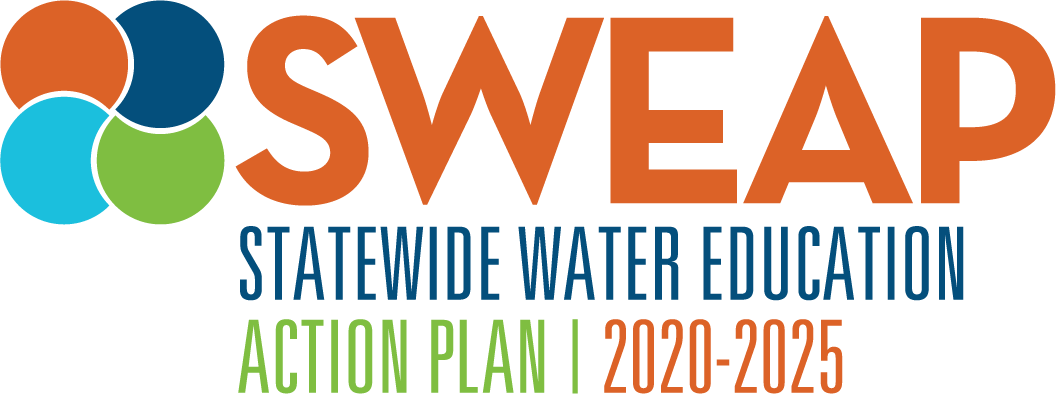Water educators use education strategies to increase knowledge and teach skills.
Outcome 2: The proportion of Coloradans in each river basin who can articulate at least three “Critical Water Concepts” increases.
SWEAP Strategies |
Local Actions: EXAMPLES ONLY Local = basin/watershed and community-scale |
2a. Produce and distribute information to support and clarify Critical Water Concepts. |
2a1. Work with local water educators to understand and incorporate Critical Water Concepts in their information and programs. |
2b. Facilitate incorporation of Critical Water Concepts in educational programming. |
2b1. Outreach and work with district/local schools to build appreciation and incorporation of Critical Water Concepts in curricula. 2b2. Create local field programs to demonstrate Critical Water Concepts and provide them to schools. |
Outcome 3: The proportion of Coloradans in each river basin who report confidence in having the knowledge necessary to take an active role in water stewardship in their community increases.
SWEAP Strategies |
Local Actions: EXAMPLES ONLY Local = basin/watershed and community-scale |
3a. Curate and promote a readily accessible source for current, factual information on a broad array of important water topics. |
3a1. Share water information throughout the community in multiple venues. |
3b. Support hands-on and project-based learning and service opportunities for water-related issues. |
3b1. Facilitate student-led action projects as part of project-based learning. |
3c. Incentivize and reduce barriers to participation in training for underrepresented groups and geographic areas. |
3c1. Identify, reach out, and share information resources with underrepresented groups in the community. 3c2. Facilitate dialogue between traditional water professionals and decision-makers with underrepresented groups to remove barriers. |
Outcome 4: The proportion of Coloradans in each river basin who report confidence in having the skills necessary to take an active role in water stewardship in their community increases.
SWEAP Strategies |
Local Actions: EXAMPLES ONLY Local = basin/watershed and community-scale |
4a. Train the trainers to build participants’ skills in discourse and decision-making. |
4a1. Host environmental issues forum moderator trainings. |
4b. Expand leadership development opportunities for adults and youth that foster skills for informed discourse and decision-making. |
4b1. Tailor programs that use role-play to build decision-making skills based on Colorado water scenarios. |

